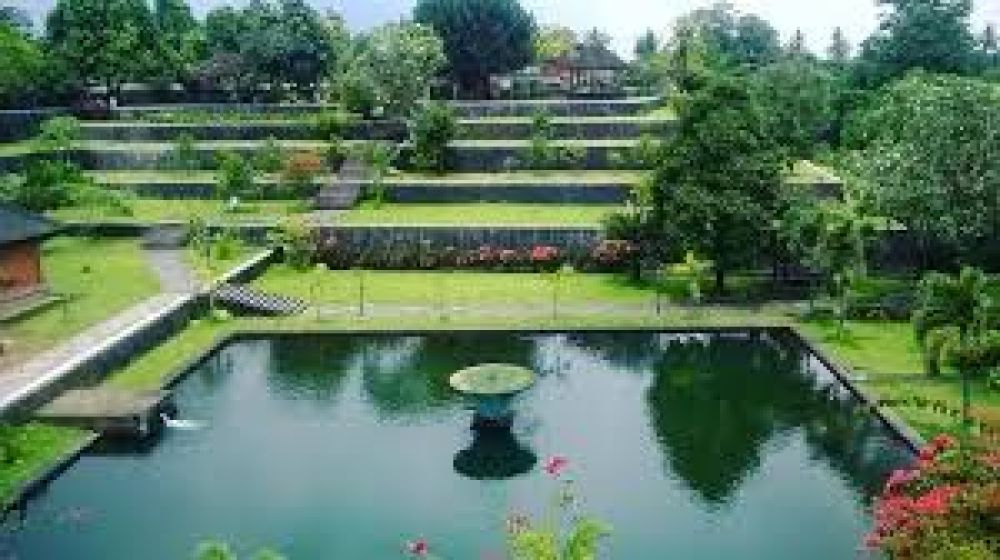

Narmada Park, known locally as Taman Narmada, is a historical park located in the West Lombok Regency, near Mataram, the capital of the island of Lombok, Indonesia. Established in 1727 by King Anak Agung Gede Ngurah Karang Asem, this park holds a significant place in Lombok's cultural and historical landscape. King Karang Asem created Narmada Park not just as a lavish royal garden but also as a spiritual retreat and a miniature replica of the summit of Mount Rinjani and its crater lake, Segara Anak.
The rich history of Narmada Park is embedded in its dual purpose: as a symbol of the Hindu belief in eternal youth and as a crucial site for ritual ceremonies. The park's name itself is derived from the Narmada river in India, which is associated with one of the main Hindu deities, Lord Shiva. The centerpiece of the park, a pool named "Youth Fountain" or "Air Awet Muda," is believed to provide longevity and eternal youth to those who bathe in or drink its waters, reflecting Hindu philosophies concerning life and regeneration.
The Narmada complex spans approximately 2 hectares and is intricately landscaped with lush gardens, fish ponds, and fountains. Its architecture is a blend of Hindu and indigenous Sasak design. Visitors to the park are greeted by the grandeur of the Balai Petirtaan temple, the majestic Kalasa fountain, and the Bale Terang – a high hall used by the king to observe the annual “Pujawali” ceremony, a ritual symbolizing the descent of the gods into the crater lake of Rinjani.
Tourism in Narmada Park has transitioned from a local curiosity to an important cultural attraction for tourists from around the world. Efforts have been made in recent years to preserve and maintain the historical elements while also providing modern conveniences for visitors. Local festivals and cultural performances are frequently held in the park, allowing tourists a glimpse into the vibrant traditions of Lombok.
As travel evolves, Narmada Park is seeing a shift in its visitor profile. Eco-tourism and cultural tourism are becoming increasingly popular, with travelers seeking more authentic and sustainable experiences. Narmada Park caters to these trends by offering a mix of cultural immersion, nature, and history. Tourists are increasingly interested in local guides who can offer in-depth stories and insights into the park's significance and the island's heritage.
Exploring Narmada Park provides a serene and contemplative experience. Modern-day visitors can walk through the same paths once graced by kings, participate in the local ceremonies, or simply enjoy the tranquil settings that blend natural beauty with historical significance. The park is also a hub for learning about Lombok's unique agricultural practices and is a source of inspiration for scholars and enthusiasts of Balinese and Sasak architecture.
Whether you're a history enthusiast, a culture buff, or just someone looking to delve into the beautiful landscapes and traditions of Indonesia, Narmada Park in Lombok awaits with a timeless journey through its enchanting grounds.